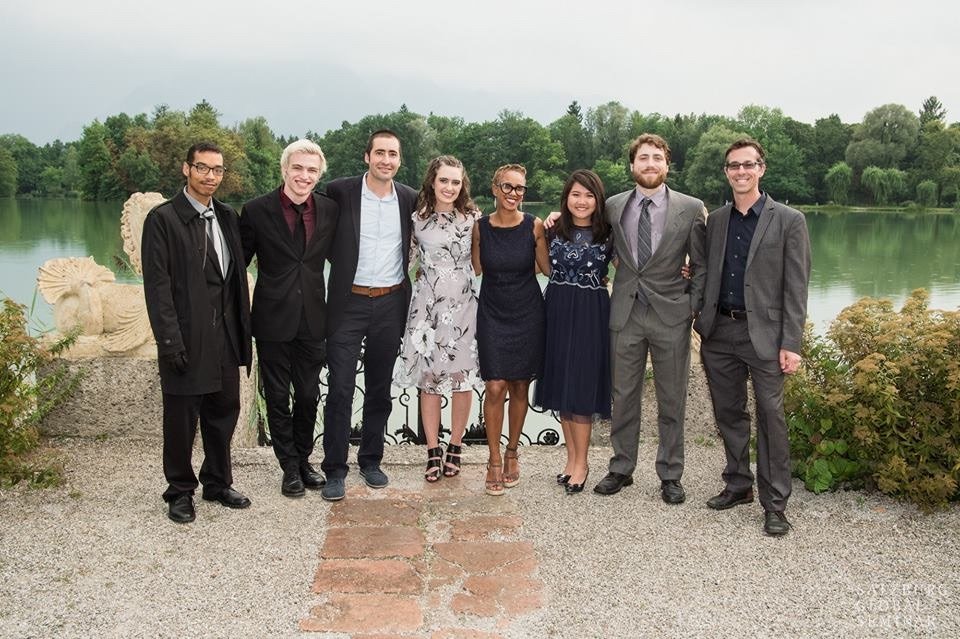Emerson Students Take On Extremism at Salzburg Conference

Six Emerson College students joined up with 77 young people from 20 countries in Salzburg, Austria, this summer to create an online playbook aimed at educating people about global populism and extremism.
“Voices Against Extremism: Media Responses to Global Populism,” was the topic of the 11th Salzburg Academy on Media and Global Change, held July 16 to August 5, and led by Program Director Paul Mihailidis, associate professor of Marketing Communication at Emerson.
“The 83 students, 13 faculty, and 15 visiting experts came together to create a meaningful civic media intervention that provides creative media solutions for responding to harmful populist rhetoric,” Mihailidis said in a statement. “Their work emerged out of a commitment to themselves, and each other, to be open, honest, and creative, and open to new ideas.”
Emerson participants included Brian Simonelli ’19, Christian Gibbons ’19, Elizabeth Morier ’18, and Civic Media: Art and Practice graduate students Rachel Hanebutt, Samantha Viotty, and Riley Hunt ’15. Eric Gordon, associate professor of Visual and Media Arts and founding director of the Emerson Engagement Lab was also on faculty in Salzburg.
Re:Action: A DIY playbook for building a better world, the online publication created by the students, uses video, infographics, music playlists, interactive maps, text-based games, e-zines, comics, and data visualization to teach people about how populism and extremism operate and how they affect people around the world. Exploring themes such as children’s rights, climate change, journalism, violence against women, and freedom of information, the playbook hopes to promote dialogue around global populism and give readers the tools needed to combat extremism.
Throughout the three-week program, students attended workshops and took part in exercises with Salzburg Academy faculty and guest speakers, including U.S. Supreme Court Justice Anthony Kennedy and New Yorker contributing writer Robin Wright. Topics covered included critical media making, connecting civic imagination and civic media, bridging cultural divides, journalism ethics, and media literacy.
In between working on civic media projects, the students took educational trips in the area, including to the Alps and the Mauthausen Memorial, site of a Nazi concentration camp.
“Before Salzburg, I didn’t realize how truly powerful media can be in shaping societies and changing perspectives,” Hanebutt, one of the Emerson students to attend, said in a statement. “Whether it is populism or climate change, I now know that I want to be a part of creating more just and equitable political systems, through media.”
Nations represented at the Academy included Argentina, Austria, Canada, China, Egypt, Finland, Hong Kong, India, Indonesia, Jordan, Kenya, Lebanon, Mexico, the Netherlands, Palestine, Singapore, Slovakia, Syria, the United States, and Venezuela.
Categories